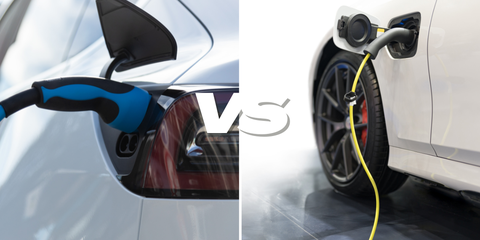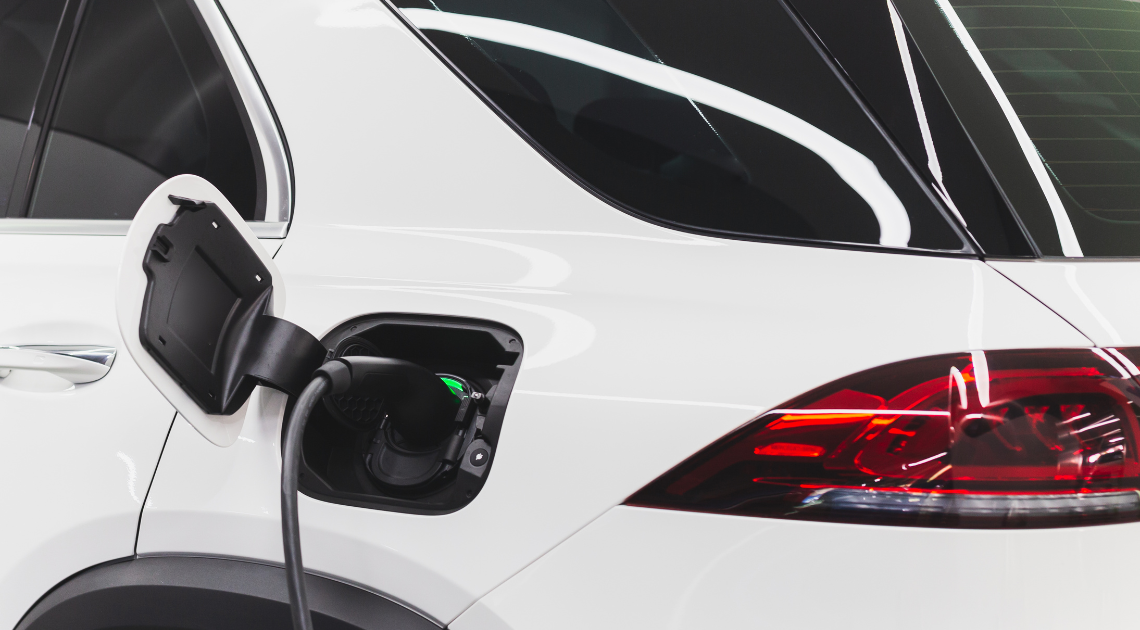
Hybrid vs Electric Cars: Navigating the Decision for Your Next Vehicle Purchase
As the automotive industry continues to evolve and embrace a more environmentally friendly alternative, drivers are increasingly faced with the choice between hybrid and electric vehicles. Both options offer unique advantages and considerations, making the decision process more complex than ever before.
In this article we will explore the key differences between hybrid and electric cars, helping you determine which option best suits your needs and lifestyle.
Understanding Hybrid Cars

Hybrid vehicles combine a traditional internal combustion engine with an electric motor and battery pack. This dual-power system allows the car to switch between petrol and electric power, or use both simultaneously depending on driving conditions. The electric motor assists the petrol engine during acceleration and powers the car at low speeds, while the petrol engine takes over at higher speeds and charges the battery when needed.
Advantages of Hybrid Cars
- Fuel Efficiency: Hybrid cars offer improved fuel economy compared to traditional petrol-powered vehicles, as the electric motor helps reduce the workload on the engine.
- Lower Emissions: By relying on the electric motor for part of the journey, hybrid cars produce fewer emissions than their petrol-only counterparts.
- Longer Range: With the combination of a petrol engine and electric motor, hybrid cars typically have a longer driving range than fully electric vehicles, making them suitable for both short and long trips.
- Smoother Transition: For those accustomed to traditional petrol-powered cars, hybrid vehicles offer a more familiar driving experience and refuelling process.
Considerations and Challenges
- Complexity: The dual-power system in hybrid cars is more complex than traditional petrol engines, which can lead to increased maintenance costs and potentially more expensive repairs.
- Fuel Efficiency Variations: While hybrid cars generally offer better fuel economy than petrol-only vehicles, the actual efficiency can vary greatly depending on driving conditions and habits. Frequent short trips or aggressive driving may result in lower fuel savings than expected.
- Reduced Towing Capacity: Due to the added weight of the battery pack and electric motor, some hybrid cars may have a lower towing capacity compared to their petrol-only equivalents.
- Driving Experience: Some drivers may find the transition between electric and petrol power in a hybrid car to be less smooth or responsive compared to a traditional petrol engine.
Understanding Electric Cars

Electric vehicles (EVs) are powered entirely by an electric motor and battery pack, without the need for a petrol engine. They rely on charging from an external power source such as a home charger or public charging station to recharge the battery.
Advantages of Electric Cars
- Zero Emissions: Electric cars produce zero tailpipe emissions, making them the most environmentally friendly option for personal transportation.
- Lower Operating Costs: Electricity is generally cheaper than petrol, resulting in lower fuel costs for electric car owners. Additionally, electric motors have fewer moving parts, which can lead to reduced maintenance expenses.
- Instant Torque: Electric motors deliver instant torque, providing quick and smooth acceleration from a standstill.
- Government Incentives: Many governments offer incentives such as tax credits or grants to encourage the adoption of electric vehicles.
Considerations and Challenges
- Range Anxiety: One of the primary concerns for potential electric car buyers is range anxiety – the fear of running out of power before reaching the destination or a charging point. However, with advancements in battery technology and the expansion of charging infrastructure, this concern is gradually decreasing.
- Charging Time: While refuelling a petrol car only takes a few minutes, charging an electric car can take anywhere from 30 minutes to several hours, depending on the charging method and vehicle's capabilities.
- Initial Cost: Electric cars often have a higher upfront cost compared to their petrol or hybrid counterparts. However, lower operating costs and government incentives can help offset this initial investment over time.
- Infrastructure: The availability of charging infrastructure is crucial for the widespread adoption of electric cars. While the number of charging stations is growing rapidly, it may still be a concern for those living in areas with limited access.
The Conclusion
Ultimately, the choice between a hybrid and an electric car depends on your individual needs, driving habits and personal preferences. If you frequently take long trips or live in an area with limited charging infrastructure, a hybrid may be the more practical choice. On the other hand, if you primarily use your car for short commutes and have access to charging at home or work, an electric car could be a viable and environmentally conscious option.
Consider factors such as your budget, daily driving distance, available charging options and long-term savings on fuel and maintenance costs. It's also essential to research the specific models available in each category, as technology and features can vary greatly between brands and trim levels.
By understanding the key differences, advantages, and challenges associated with each type of vehicle, you can make an informed decision that aligns with your needs and contributes to a greener future.
Whether you choose a hybrid or an electric car, you'll be taking a step towards reducing your carbon footprint and embracing the future of sustainable personal transportation.
Here are Carlingo we stock a mixture of Hybrid and EVs. Browse and book for a test drive today.
/157/1/16488137486246e6b417a12_carlingo-master-on-white-final2000-002-.png)
